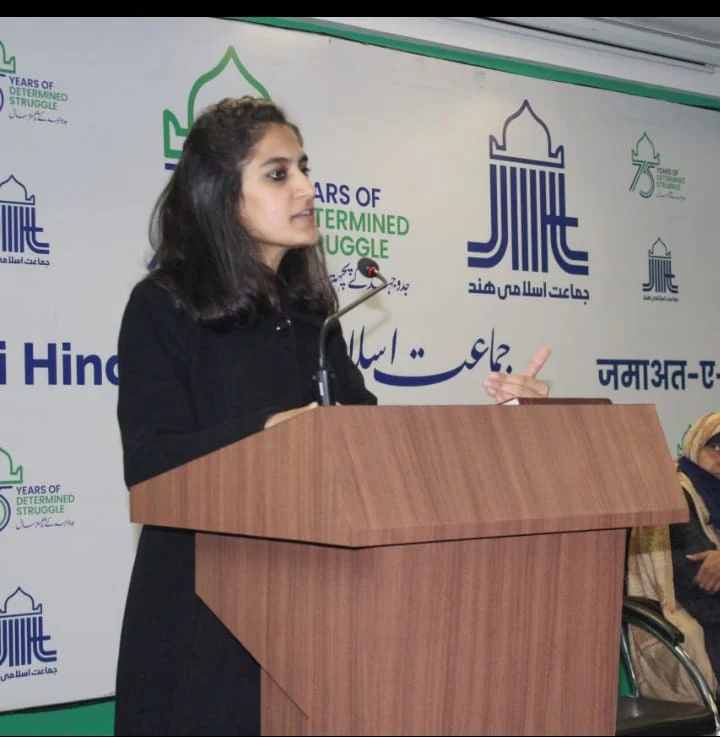 New Delhi, Jan. 31: It took nearly 22 years for the murderers of Bilkis Bano’s daughter, sister and mother to reach where they rightfully belonged – inside the Godhra Jail. All the 11 convicts surrendered before the police close to midnight on January 21. They did so after the Supreme Court refused to give them more time to surrender. As the murderers and gang rapists cool their heels in the jail, it’s time for Bilkis Bano to heave a sigh of relief. It was possible in no small measures due to the help extended by seasoned legal luminaries like Vrinda Grover, Shobha Gupta and Rashmi Singh. Not to forget Lucknow’s 76-year-old professor Roop Rekha Verma who was one of the petitioners in the case.
New Delhi, Jan. 31: It took nearly 22 years for the murderers of Bilkis Bano’s daughter, sister and mother to reach where they rightfully belonged – inside the Godhra Jail. All the 11 convicts surrendered before the police close to midnight on January 21. They did so after the Supreme Court refused to give them more time to surrender. As the murderers and gang rapists cool their heels in the jail, it’s time for Bilkis Bano to heave a sigh of relief. It was possible in no small measures due to the help extended by seasoned legal luminaries like Vrinda Grover, Shobha Gupta and Rashmi Singh. Not to forget Lucknow’s 76-year-old professor Roop Rekha Verma who was one of the petitioners in the case.
Rashmi Singh recently visited Jamaat-e-Islami Hind where she was greeted by a packed auditorium. Rashmi was there to relate the story of the ordeal and final success of Bilkis 22 years after she was found in a relief camp in Gujarat by the CPIM leader Subhashini Ali.
Speaking to a women-only audience, Rashmi Singh said, “In the case of Bilkis, an FIR was registered on 4 March 2002 and eventually the police filed a closure report, citing the reason that they could not trace the accused and this closure report was eventually accepted by the Judicial Magistrate in 2003. So it took a year for the closure report to be accepted. This was the first time that Bilkis had to approach the Supreme Court, asking for the cancellation of the closure report. She did this with the assistance of National Human Rights Commission (NHRC). The Supreme Court was pleased to entertain this petition, they directed reopening of the investigation and the matter was transferred to CBI. The fresh chargesheet was filed by CBI. Then again Bilkis had to shift to Supreme Court for shifting of the trial from Gujarat to Maharashtra. The Session Court in Bombay took cognize.”
Ms Singh went on to share details of all the hurdles faced by Bilkis: “When the trial court prosecution submission was recorded, the prosecution had pointed out certain lapses in the investigation. Twelve men were accused of gangrape and murder, two doctors were accused of trying to make the evidence disappear, and six police officials were accused. So far as the police officials and the doctors are concerned, this was submitted by the prosecution before the trial court. The accused police officials visited the spot, where Bilkis’s relative lay dead on 4 March, 2002, they took photograph of the dead bodies without carrying any inquest panchnama, which is required under law. They left the dead bodies unguarded. Later they framed the inquest which has false statements in it. Like, they said Bilkis’s daughter’s body wasn’t found. Similarly, the doctors recorded the false statements in the postmortem report. They didn’t even collect the biological samples of blood or vaginal swabs, etc. The accused police officials also caused the evidence of the crime to disappear by burying the body in the pit with common salt without collecting any biological samples, this was the submission of the prosecution, not the finding of the trial court. All was done to save the accused.
“The trial court judgement came in 2008. The trial court found all eleven convicts guilty of gangrape and multiple murders, but the trial court acquitted the doctors and police officials, citing insufficient evidence. The trial court judgement in 2008 was challenged by the convicts, also by state;again acquitted the doctors and the police officials. The High Court judgement said that there is a serious lapse in the investigation, ‘The truth and falsehood are mixed up in such a manner that at every stage of investigation, the truth is hidden under layers of intentional laxity, omissions, contradictions and falsehood and the truth is required to be unearthed.’ This was the High Court judgement passed in 2017. Again the judgement was challenged in the Supreme Court by the convicts, this is how the first round got over, and all the convicts landed up in jail, then a new judgement was passed in January, 2024, cancelling the remission granted,” Ms Singh revealed. Ultimately, the Supreme Court awarded the accused life imprisonment.
Earlier, Ms Singh was felicitated by Jamaat-e-Islami Hind Secretary Shaista Rafat.


